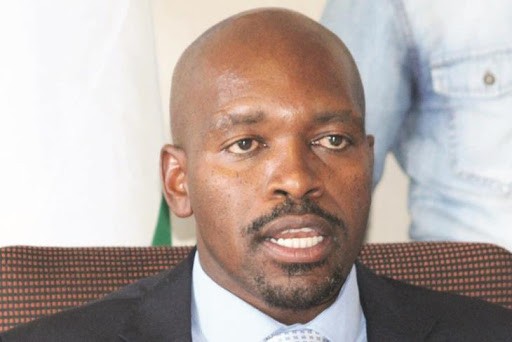By Kefiloe Kajane
The Independent Democratic Union of Lesotho (IDUL) says it does not condone any violence by the factory workers, especially the one seen in a viral video clip of an unidentified woman who is being assaulted.
In the video clip that has been circulating in social media this week, two men were seen beating a woman with sticks while a voice of a woman was heard in the background encouraging the men to assault her.
IDUL spokesman May Rathakane said the unions are, however, surprised that they never heard any comment from government about the about the brutality the factory workers endured in the past weeks.
He indicated there are now four people who died from police brutality at “the factories but no one is saying anything.”
“We do not want any kind of violence and we also want to be protected from the police. There are children now left as orphans because their parents died in the hands of the police and no one is talking about that,” Rathakane said.
The Lesotho Mounted Police (LMPS) this week arrested two men and a woman in connection with the alleged incident.
The LMPS public relations officer Senior Superintendent Mpiti Mopeli told theReporter that the three suspects were arrested on Wednesday and are expected to appear before the magistrate’s court today.
Meanwhile, the government of Lesotho this week released a statement regarding the same video, expressing disappointment and disgust towards the scenes, and adding it was even more distressing to learn that another woman can be heard urging these two ‘cowards’ to beat up the victim.
“It is with great regret and disgust to have watched a video of a woman being beaten up by two hooded men on the pretext that she ought not to have reported to work, because her colleagues had chosen not to go to work as part of the ongoing strike in the textile industry.
“This unfortunate incident comes just few months after Basotho women came together to pray for life without abuse. That is another woman encouraging men to beat up another woman. Government has also learned with dismay the destruction of public property including streetlights and looting of shops as well as rental houses.
“Still, it is alleged that these acts are carried out against those textile workers who have not participated in the ongoing strike. Workers have rights to bargain for wages, but these rights must always be exercised within the ambit of the law and never by impinging on the rights of the public,” the statement read.
The government also appealed to leaders of trade unions to urge their members not to be involved in any criminal activities by instilling fear to other workers who have decided not to engage in the strike.
But the Lesotho Federations Trade Unions (LFTU) released a statement which did not include any comments on the video.
In their statement, said the unrest within the textile workforce was a result of exploitation of women employees by an industry that has done very little if any to invest in the country’s economy while enjoying the benefits of AGOA.
The statement suggested that the strike could have been averted were it not due to parasitic industry under which women find themselves.
“We call upon government to respect and protect the right of workers to protest, hence we call the police authority to order when denying workers this basic right under the pretext of Covid-19 regulations. But political rallies are being held without any hindrance. There is a need to facilitate establishment of bargaining councils wherein proper collective bargaining can take place in all sectors of our economy including the public sector.
“This was contemplated in the 2018 settlement wherein the government undertook to embark on empowerment of union leadership to engage at par with employers in the textile sector. We call on authorities to immediately and unconditionally release workers’ leadership detained after participation in the protest against super exploitation.
“To expedite the promulgation of the new Labour Code whose development has been supported by ILO and social partners at a serious cost as far back as 2006, which to date remains struck in the hands of government.,” the statement read.









